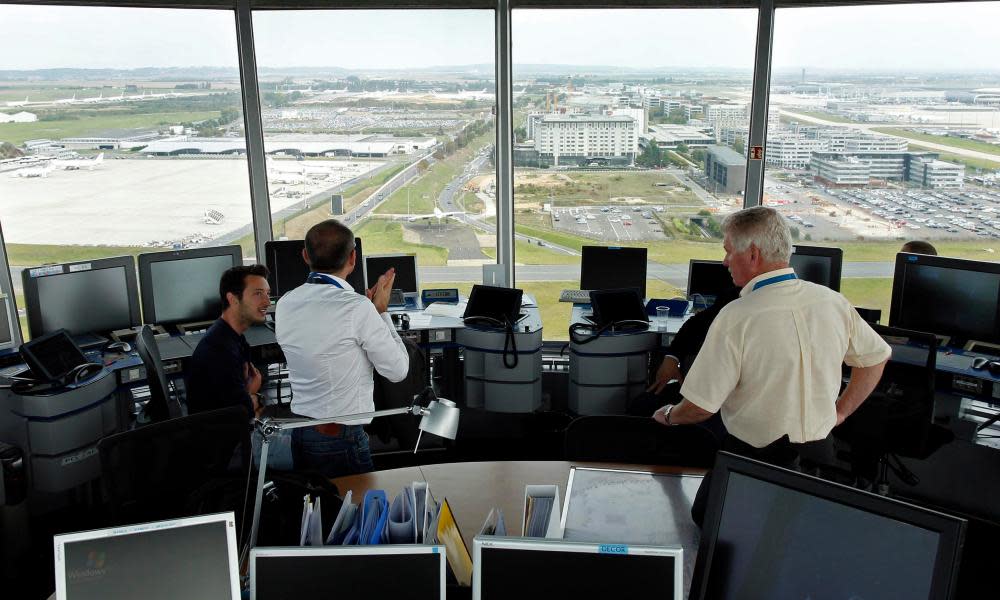French air traffic control 'causes third of Europe's flight delays'

French air traffic control (ATC) causes one-third of flight delays in Europe each year, at a cost of about €300m (£263m) to airlines, according to a French parliamentary report.
Strikes by controllers and outages caused by antiquated equipment have been blamed for the disruption to aviation, the senate’s finance committee said.
Vincent Capo-Canellas, a centrist senator and the report’s author, said: “Our country is responsible for 33% of the delays due to air traffic control in Europe.”
He said the situation was unlikely to improve when France’s 4,000 ATC staff were facing increases in air traffic: there were 3.1m flights last year in Europe, 4% more than in the previous year and 8.6% more than in 2015.
Capo-Canelas added: “We are a long way behind our [European] neighbours. The control equipment is antiquated.”
He said this was especially worrying as €2bn had been spent modernising ATC since 2011.
Last week Ryanair said there would be an airspace “meltdown” unless urgent action was taken to halt the rolling industrial action by French controllers.
The senate report found that between 2004 and 2016 they were on strike for a total of 254 days, far more than controllers in any other European country. Second were controllers in Greece, with 46 days, followed by Italy, with 37 days and Germany, with four days.
For several months, France’s 4,000 air traffic controllers have been engaged in a series of strikes to protest against staff cuts and a lack of up-to-date technology, blamed on a “lack of investment”.
The reports says: “Every day of strike in France has a much bigger impact on European traffic than [strikes] in other European countries.”
French controllers are trained at the National Civil Aviation School where the state pays them just under the minimum wage while studying on condition that they sign up for at least 10 years on graduating. They can earn about €5,000 a month and generally work a three-days-on, three-days-off rota.
“Everything suggests the situation will only become worse in the years to come and strong solutions must be put in place right away to bring things up to scratch as soon as possible,” Capo-Canellas said.
The good news, he added, was that safety was still given total priority.

 Yahoo News
Yahoo News 
